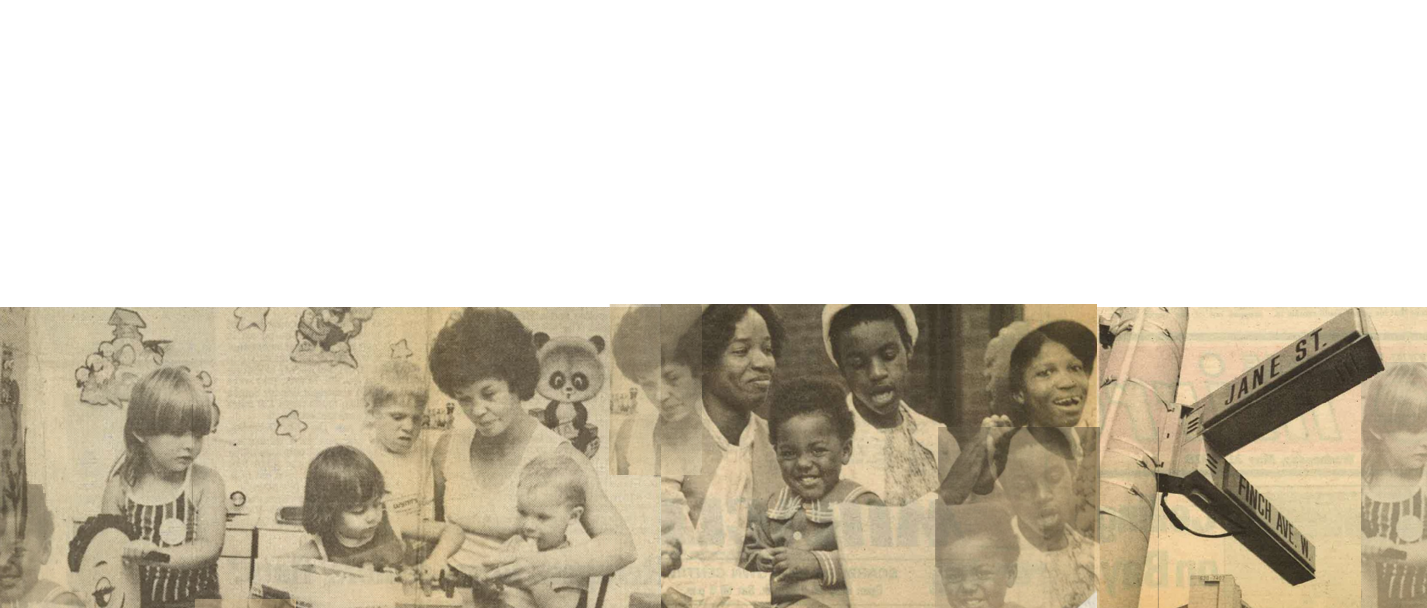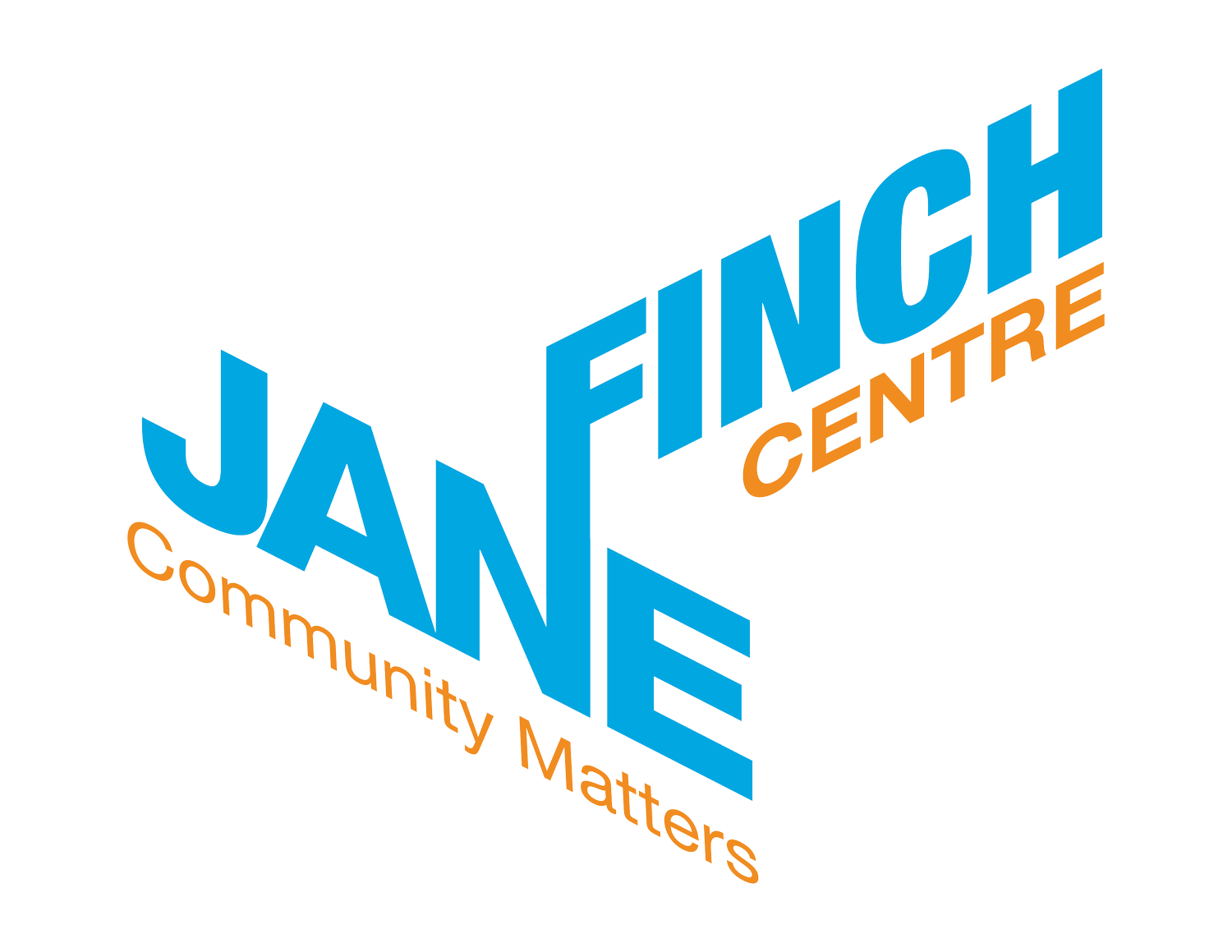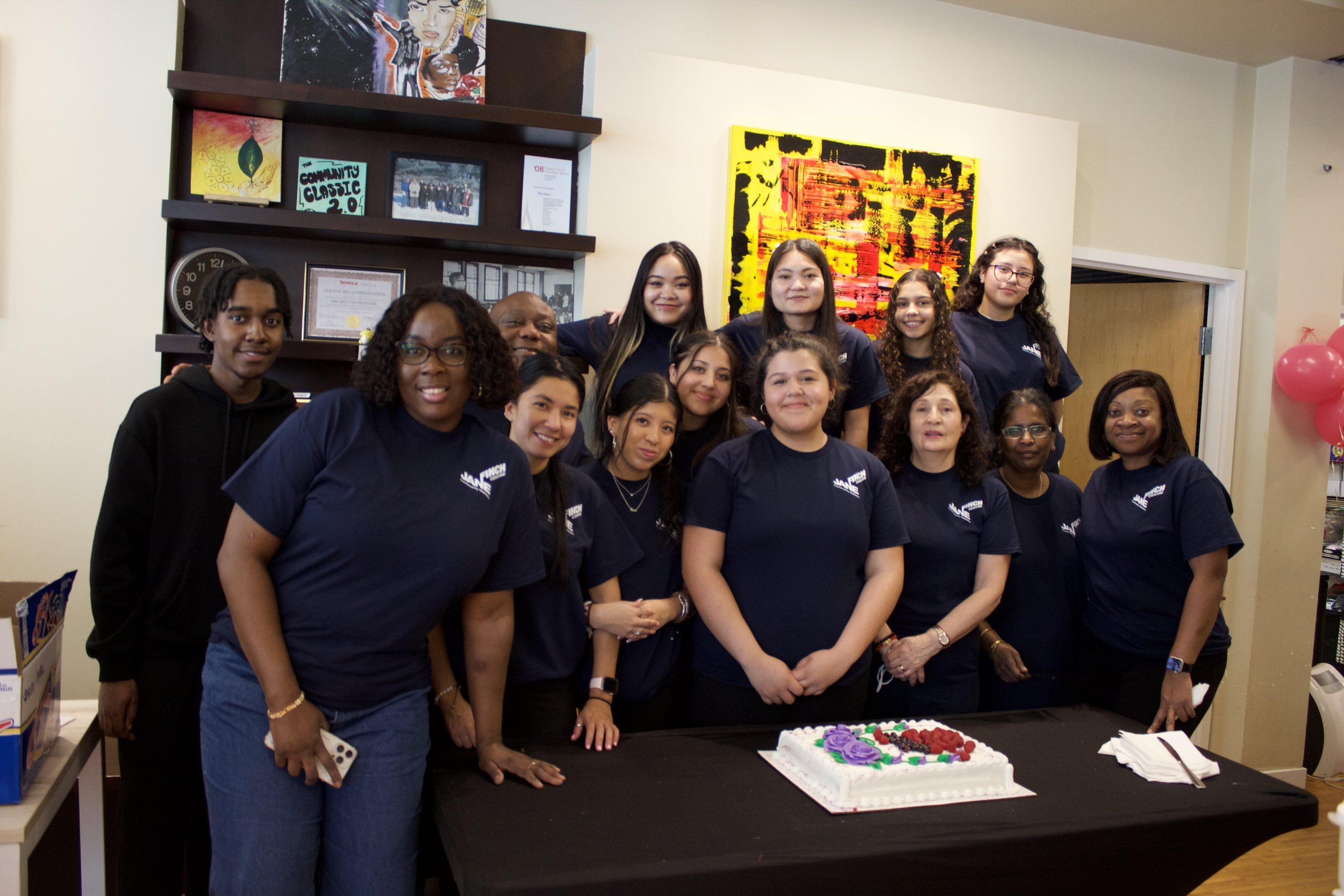
More than a buzzword.
Equity and the Jane/Finch Centre
Corner of Jane and Finch, circa 1978
In 1973, a group of residents who lived in the Jane-Finch community formed an organization called the Downsview Weston Action Community (DWAG) to address a variety of community issues, , laying the groundwork for what would later become the Jane/Finch Centre
History of action
Equity and Inclusion ARE not negotiable.
it’s foundational.
Founded on principles of equity, access and community development, the Jane/Finch Centre has used a strengths-based approach to service delivery and intervention.
☐ Committed to anti-racist education since the 1980s
Since JFC's start, the agency has prioritized tackling anti-Black racism in our community. This commitment was pronounced in the 1980s and 1990s when JFC took a leading role in local anti-racism efforts. Working closely with other community-led groups, we provided essential training to workers and residents. Throughout this period, we leaned on the knowledge of professionals dedicated to anti-racist practices, whose expertise helped us integrate cultural competency best practices into our service provision.
☐ Working against gender-based violence since the 1980s
We responded to GBV through advocacy and dedicated staff hours to help create the first anti-violence centre in North York (The North York Women’s Shelter est. 1984).
☐ Advocacy and protest in the 1990s
Our Staff organized with hundreds of residents to organize a protest protest on the corner of Jane Street and Finch during the Metro Days of Action.
☐ Partnerships, Reports and Community Development
In 2007, we worked with a number of community organizations and agencies to host Jane-Finch is Getting On, a community forum, at the Driftwood Community Centre. The event focused on issues of access and equity faced by community residents. Following that, many community residents felt that we needed to do more work around various aspects of poverty in the community and the fact that some of the root causes of the problems that we had been facing in the community had to do with lack of access to employment, affordable food, poverty, and lack of investment in the community. So, some anti-poverty initiatives started to be formed around 2007-2008 and out of that, the Jane Finch Action Against Poverty (JFAAP) was formed.
☐ COVID-19 vaccine equity and advocacy for paid sick days
Given the disproportionate impact of the COVID-19 pandemic on Northwest Toronto in 2020 and 2021, the Jane/Finch Centre joined public advocacy initiatives for protective measures such as prioritized access to COVID-19 vaccines, culturally relevant vaccination information dissemination and implementation of paid sick leave policies in workplaces.
Notes: By Us! For Us! Activism in Jane-Finch, a Working Class Community; Wanda MacNevin (2022)
Newspaper article on Enid Lee, one of the anti-racism trainers, 1982.
International Women’s Day, 2024
‘From Jane/Finch, With Love’, Youth and Settlement Staff, 2023
Community Wellness Fair, Jane Finch Mall, 2023
Youth-led Sex Trafficking Prevention Group (STPG), 2023
ReCeNt equity-focused initiatives
Black Muslim Youth Outreach Worker
The Black Muslim Outreach Worker focused on addressing the intersecting challenges faced by youth dealing with anti-Black racism and Islamophobia through one-to-one support and customized group programs.
Black Creek Fair Economies Project (BCFE)
Through BCFE, we target barriers to employment for racialized, low-income residents by addressing race-based issues in employment, while working with local residents, leaders, and other community members to create a Jane-Finch Community Benefits Framework that will enable community members to have a voice in shaping their community's vision.
Jane Street Road Safety Review: Equity-Driven Community Engagement Process
In collaboration with the City of Toronto, Toronto Transit Commission (TTC), and various partners, this project engaged local residents, business owners, artists, and youth in shaping the future planning of Jane-Finch. Through a comprehensive safety review and inclusive community engagement process, the project aimed to gain insights into historical and current road safety challenges on Jane Street.
From June to October 2022, the Green Change team at the Jane/Finch Centre worked alongside resident leaders and community partners to facilitate a series of engagement activities focused on key intersections within the study area. These activities included street outreach, in-person walking tours, and virtual community meetings. More than 203 residents from local communities actively participated in the process, sharing their perspectives, concerns, experiences, and innovative ideas concerning travel along Jane Street.
Anti-Racist Action Project (ARAP)
The ARAP program worked to support to Black, Newcomer, and Indigenous youth, incorporating anti-oppressive programming focused on sports and spatial access. Within this program, the team emphasized open conversations about racism and anti-racism to identify and eliminate barriers hindering youth access to sports and other opportunities. This work extended to eliminating obstacles for racialized community members in accessing park programming, outdoor education, and park spaces through our broader park work, community documentation, and advocacy initiatives.
Crisis (Non-Police Intervention)
The Toronto Community Crisis Service (TCCS) dispatches trained teams of multidisciplinary crisis workers to respond to people experiencing a mental health crisis. It is a community-based, non-police response to mental health crisis calls and well-being checks.
EQUITY IN RECRUITMENT
Our hiring policies, work plans, recruitment processes and community-centric programming are dedicated to ensuring that our staff and management team reflect the diversity of our community.
We prioritize the hiring of and strongly encourage applications from community residents, 2SLGBTQ+, BIPOC, persons with disabilities, gender-diverse and non-binary individuals and those who can provide different perspectives. The Jane/Finch Centre is committed to inclusive and barrier-free hiring practices.
90% of our management team identifies as racialized (Black, Caribbean, Latin, Asian).
70% of our management team is comprised of women.
96% of our staff identifies as racialized.
6 out of 9 of our board members come from racialized backgrounds, and the board is led by women, comprising 77% of its leadership.
Our staff speak 10+ languages that reflects the diverse landscape of the community
2024 ACTION PLAN
In 2023, the board of directors and staff undertook a collaborative process of introspection, realignment and strategic recalibration. Anchored in our principles of community engagement, social justice, equity and capacity building, we reassessed our organization's effectiveness in addressing systemic gaps.
We acknowledge the need for continuous dedication towards building an anti-oppressive, anti-racist and equity-driven framework both within our internal structures and within our service delivery. This commitment takes centre stage in 2024.
Below we outline where we are, and where we want to go.
Community-centred fundraising, and our gift-acceptance policy
In our pursuit of enhanced equity practices and foundational policies to bolster our equity initiatives, we are developing a community-centric fundraising guide alongside a comprehensive gift-acceptance policy. These frameworks stand as transformative alternatives to donor-centric models, to more inclusive strategies that prioritize the needs and perspectives of the community.
This model will serve as a counter-narrative to existing fundraising philosophies, emphasizing collaboration, and empowerment, and is grounded in racial and economic justice. By developing localized solutions tailored to specific contexts, community-centric fundraising promotes greater equity and effectiveness in fundraising efforts.
Equity Steering Committee
In 2023, we developed our Equity Steering Committee (ESC), to help guide and facilitate our equity work within the agency. The committee is broken down into 3 sub-committees, each comprising staff from various departments, and each dedicated to a specific goal.
Equity and Inclusion Action Group: Aims to establish and promote internal equity policies, conduct staff training for cultural competence and implement mechanisms to monitor and integrate equity principles into roles, fostering a culture of equity aligned with organizational values.
Community and Solidarity Action Group: Aims to enhance a landscape of equity by conducting environmental scans, fostering partnerships and exchanging best practices with external organizations, thereby contributing to broader community equity goals.
Communications Action Group: Develops and implements public-facing equity strategies, coordinate agency-wide messaging and empower staff for active participation, enhancing transparency and accountability while fostering a unified organizational voice on equity-focused matters.
Photo credit: Art from Flora Johnson
TRUTH AND RECONCILIATION ACTION PLAN
In 2024/25, we are renewing our commitment to Indigenous solidarity and education through comprehensive actions aimed at fostering understanding, equity, and reconciliation. Our strategy entails prioritizing Indigenous-led and focused education and training programs for our staff, ensuring they are equipped with the knowledge and awareness necessary to engage respectfully and effectively with Indigenous communities. Additionally, we are conducting a thorough audit of our current equity policies to identify areas requiring improvement or adjustment specifically concerning our Indigenous community.
Central to our efforts is the creation of a robust truth and reconciliation plan, spearheaded by an Indigenous-expert consultant. This plan will serve as a vital framework guiding our policies and activities, facilitating active engagement in truth-telling and reconciliation processes. By collaborating closely with Indigenous experts and community leaders, we aim to develop initiatives that acknowledge historical injustices, honor Indigenous cultures and traditions, and promote healing and understanding. Through these concerted efforts, we are committed to fostering a more inclusive and just environment within our agency and contributing to broader societal reconciliation efforts.









